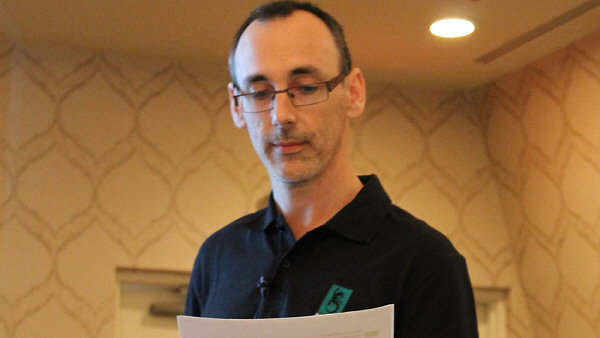
I was in Fredericksburg, Virginia (United States of America) on the 19th of this month for Slitherine’s annual press conference, where the wargame and strategy publisher talked about its current developments and announced its upcoming gaming releases. Among those games are Buzz Aldrin’s Space Program Manager (turn-based space construction and simulation – PC, Mac, iPad, Android), Pandora: First Contact (turn-based sci-fi 4X strategy – PC, Mac, Linux) and Warhammer 40K: Armageddon (turn-based science-fantasy – PC, Mac, iPad, Android).
I talked with Iain McNeil, Slitherine’s development director, about the group’s forthcoming science fiction strategy titles. We also talked about 4X games, publishing duties, mobile gaming and other interesting things. Now, enjoy the interview! If you are an indie game developer in particular, thinking in doing a partnership with a publisher in the near future, I think you will not want to miss this one ;)
SS: I read on a recent interview of yours, that you still have a copy of Master of Orion 2 around and that you still boot it up from time to time “as there is still nothing that compares!”, you said. You also mentioned Civilization as another game that hooked you. So, is it fair to say that 4X games are one of your favorite game genres?
Iain: Oh definitely, yeah. I mean, the games when I was growing up, the ones I really loved, Civilization is probably the number one. But, Railroad Tycoon, not 4X, but it’s the empire-building aspect, that’s more what I’m really interested in. Dungeon Keeper was a big one with me and that kind of role-playing games is kind of like empire-building but you’re building a character instead of an empire, it’s that progression. But, Master of Orion 2, I don’t know which one I spent most time on, but it’s one of the ones I played more than anything else.
SS: Would buying the Master of Orion IP be something you’d be interested to do one day if the chance comes? And, why or why not? [Asked before Wargaming.net bought the Master of Orion IP from Atari]
Iain: Oh yea, I would love to. Absolutely. I would love to do a Master of Orion game. Distant Worlds is a great game, but it’s a slightly different kind of thing. My personal preference, I prefer turn-based. Real-time games, I understand the appeal, and at one point I did play a lot of real-time games but for whatever reason my preference now is for turn-based games. I think mostly because I can play them at my own pace. I don’t tend to get big chunks of free time. My gaming is done in small chunks scattered around and it doesn’t suit real-time gaming as well. Turn-based games you can have a dip in and out more easily, at least that’s the way I find it as well.
So, I would love to do a Master of Orion game, absolutely. Distant Worlds is one of our best selling games, and I think Master of Orion if anything is a better fit for our audience than Distant Worlds, that’s pushing the boundaries more than Master of Orion would be. So, it would definitely be something we’ll be interested in. I don’t know if it’s going to happen though (laughs).
SS: What’s your take on 4X games today? Do you still play them? Care to give a few examples?
Iain: Recently, I’ve played Civilization 5. Been playing a bit of that recently. I love the exploration part. I love revealing the map, finding stuff. For me the games, I lose interest in the game once it gets to the mid stages, once the empires are all established. It turns into more of a war game really at that point. And, Civilization games are not very good war games. If I want to play a war game I’d rather play a war game that’s designed for it. So, I tend to start lots of games but never finish them. I’ve bought Civilization 5 on Steam I think it was on my Mac, it tells you how long you’ve been playing and I think I logged 100 hours actually. That’s more than anything I’ve played probably in two years.
I’m trying to think what other 4X games I’ve played recently. It does feel like they haven’t been as many doing it as well as they used to for some reason, I don’t know why. Yea, it feels like there has been a slowdown of releases of those types of games maybe because they are very expensive to produce or maybe because Civilization is just so dominant in that sector, at least for the land-based ones. Space-based you get more variety, but there’s no one really even attempting to compete with Civilization. Pandora is probably the closest thing to that in recent years. And, we wouldn’t want to go directly head to head to Civilization anyway.
So, having a science fiction world means we can do things differently. We can’t make Civilization better than they have, to attempt it would be stupid. So, we have to give something which’s got a different reason to play. So, we can’t have all the features they’ve got, but because Pandora is science fiction it allows us to do other things they can’t do, so, it’s got a bit of interesting stuff of its own in there.
SS: Currently, the group doesn’t have that many science fiction games to offer on its portfolio, at least comparing to other themes. Pandora: First Contact and Warhammer 40K: Armageddon seem to be the new bets. Is this it for now, or do you plan to expand your sci-fi collection even further?
Iain: There’s three new fantasy strategy games that we’ve signed (Fantasy Commander: Eukarion Wars, Drums of War and Sovereignty: Crown of Kings). Then there’s Warhammer 40K: Armageddon and Pandora: First Contact. And then there’s two others (one sci-fi and the another fantasy) that we didn’t yet even announced yet.
So, sci-fi and fantasy, consciously we are expanding now that area and looking for good games in that genre. So, it’s going to be an increasing part of our lineup going forward.
SS: Pandora: First Contact entered beta roughly five months ago, and has been there ever since. Do you have a specific time frame for Pandora’s release? And, can you already advance the price at this point?
Iain: The plan is September 2013. The reason it was in beta for so long wasn’t really because there were issues, it was really because in the beta we saw so much potential, we wanted to go the extra mile for the extra features. So, we could have released the game kind of two to three months ago and it would have been working and done, but we just saw that there was an opportunity here to make this a really standout game. So, we funded the developers to spend more time adding features. We didn’t just say: “go and do some more”. We wanted the game to be better. We actually funded them because we delayed the release. It was our call, we wanted to add more content. So, we actually helped them to fund them through that process.
I haven’t set a price yet, but it’s probably going to be around $30 to $40.
SS: What about Buzz Aldrin’s Space Program Manager? Are the engines already warmed up and ready for liftoff? What will happen with the game right now? Will it enter in beta, or is it finished and will be released very soon? And, how soon?
Iain: We’re planning to go into an early access program that will start in September this year. Normally we would have put the game to beta test by now. But, what we’re doing now is kind of an internal beta testing to get us to where we’re happy to do the early access program. That’s a kind of beta test process to who will be buying into that. The plan is to have that for September but we’re kind of getting into late beta testing and balancing now. We would normally put into beta test a much less polished version, but this, because we are charging money to people, we don’t want to put something out at the level we would normally start the beta, it needs to be a bit further on.
SS: The same for Warhammer 40K: Armageddon. Is it close to release? Will it enter beta soon? Or, is it still far from that? What’s the expected release date for this title?
Iain: That’s going to be next year (2014), that’s not going to be out this year. At the moment we are at the stage where we’ve built 300 different unit types in the game. We’ve built about half of those and textured them. We’re working on the terrain tiles at the moment. The combat model has been designed. So, we’ve got all the different bits going on, it’s just that nothing is really bolted together to make a game yet. We’re expecting to have something playable before the end of the year. So, hoping to get into beta test before the end of the year, but it’s still a fair way off yet.
SS: Getting back to the 4X games subject. Are you satisfied with what you have at the moment: the real-time Distant Worlds series and the planetary 4X Pandora? Or, do you plan to invest in more 4X games in the near future?
Iain: Yea, we’d like to. The way it works generally is that we don’t commission games. Space Program Manager, Pandora, these were not games we went out and said: “can you make us this game?”. These are games that the developer was making in a different way and we’ve helped them take them to the next level. But, there was already a game that was there which was something we saw the potential in.
So, I’d like to do more 4X games but it depends on if we find a developer who’s got something interesting, than for sure we’re definitely interested. But, we don’t commission games, for two reasons: because it’s expensive and because it’s risky. So, I don’t really like funding games. We do help developers complete the games but we very rarely, if ever, complete fund them through the development process.
One of the biggest problems with that is I don’t want a developer making a game that isn’t the game they want to make. Because you aren’t going to get them to make a good game unless they’re really into it. When you start saying: “I want a game that does this”, you’re immediately pushing them into, yea, it’s not their idea anymore. They need to feel ownership, they need to feel that they’re making something that they really love, otherwise the end result is going to be average and average games these days, there’s no point.
It used to be that we have a very straight line, weaker games would be down here and they would still sell, but now it’s a real curve. The weaker games, there’s almost no point in releasing them. You’ve got to get yourself up to that quality bar to give yourself a chance. People are much more, I don’t know, demanding, fussy or less patient. There’s so much choice now. Then, unless you’re the best at what you do then you’re unlikely to do very well. So, yea, we wouldn’t want to really commission games, it’s not what we do.
SS: Regarding indie developers, that may be thinking in entering in a partnership with the Slitherine group, what level of maturity must a game have to be accepted? For example, can a partnership be shaped already at the design phase, with no code produced? Or must the game already show solid gameplay to be considered by Slitherine? And, what key aspects do you look for on a proposal?
Iain: To be honest it would be very unlikely that we would be interested in a design. We need a playable demo, really. We need to see code up and running. Part of that to demonstrate the ability, part so that we can evaluate it more easily. We definitely wouldn’t sign something from a design document. The only exception would be if a developer that produced a game before, and we could see the quality of the game, would come to us and say: “we want to do this game”. That’s a different situation. But a new developer, without a track record, there’s just no way we’d be interested in a design document.
Developers need to be able to demonstrate their technical ability, their design ability and their ability to create quality art and content. I mean, we can help with different bits. We can help them make the art better. Really, the core thing is that they need to demonstrate their technical ability and design ability. The art we can always replace. In a lot of games that we’ve released we’ve completely thrown away the art that was there and re-skin them to make them more commercially kind of competitive.
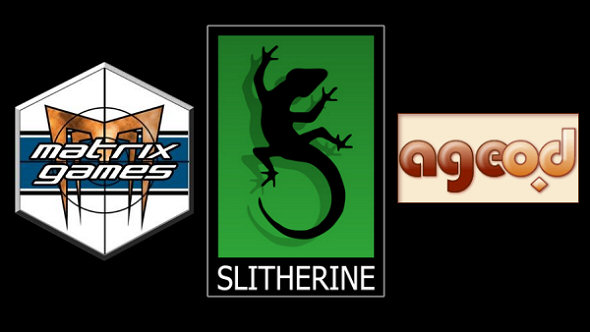
Slitherine Group
SS: Which type of support can a solo indie developer expect to receive from Slitherine if he/she decides to submit a game partnership proposal?
Iain: Well, I mean the standard stuff is, obviously we do all the publisher role. So, we’ll run the beta tests, we’ll do the installers, we’ll do the box arts, manual layouts, marketing, PR, all those kind of things. But, on top of that we can help them in various other ways. Some people mention just that they would like the art, or the sound or music. We have guys that we work with regularly, and we have very cheap rates to get these things, and we can help the developers source different media assets to drop in the game.
If it’s a turn-based game we offer them the play-by-email system, to bolt in, that comes as standard. If it’s a real-time game with multiplayer, then we have a lobby system they can use, we have matchmaking systems which link the forums and the lobbies together. Various multiplayer tools, and things. So, this allows them to do things they would probably wouldn’t be able to do. Yea, I suppose to speed up development, because all these things are already there and working, so it simplifies things.
SS: And what kind of funding systems do you offer?
Iain: It completely depends. The default system is no funding. The default system is that the developers’ role is to make the game, our role is to publish the game. But, if it’s a game that we can see lots of potential in, and we believe the team is capable of completing it, then yea, we do fund games and we fund them a lot more than we used to. So, we have quite a few games that are being funded at the moment.
But it’s case by case. For a new developer that has no track record, funding is less likely than one who’s released a game showing that they can do it. Because we’ve been burned, where we started the funding and the developer is just vaporized, and we lost everything. So, we have to be careful with this.
SS: How would you qualify your current bet on mobile devices? Do you plan to keep investing in the mobile market or even increase the investment there?
Iain: Well, we’ve got seventeen tablet games coming or releasing this year. So, yea, we’re investing on it pretty heavily. And, for the near future I see that just becoming an increasing part of the market. The problem with the sector we’re in is that things change so fast, we don’t have a five year plan. There is no point. We look into the next couple of years really, that’s as far as we can plan ahead realistically. Because in five years time, the devices and the platforms will probably be different or have changed.
The only thing that is almost certainly not going to change is the PC. I doubt the tablets are going away now, they’re probably going to be around forever now. But, PC almost certainly will not change, maybe the way we interact with them will, but there will be PC gaming of some sort. Consoles, I don’t know how that is going to turn out. But I think, yea, the tablets are going to be an increasing part of the revenue stream on the development process.
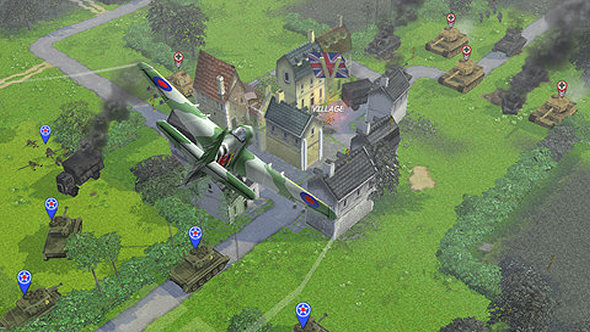
Battle Academy (iPad) | Turn-based strategy
SS: For both Android and Apple iOS devices?
Iain: Well, for us we’re having a lot of success on iOS. We haven’t had the same success on Android yet. So, we need to get a couple of more Android games out there, a couple of flagship Android games to see if we can get some interest. The game that really kickstarted us on iOS was Battle Academy, and we don’t have the same kind of flagship title on Android. So, when we get things like Space Program Manager out, that will be an interesting test to see how does the Android do.
So, at the moment we’re doing Android versions when it’s very cheap to do so. We aren’t doing specific Android versions where as we have games that have an iOS version and a PC version. At the moment we don’t have plans to do Android and PC or Android on its own. That may change if the Android market really picks-up. That’s where we are at the moment.
SS: To my knowledge, the Slitherine group sells all its games, both in box and digital form, through its own digital shops, its own platform. How likely is it that we may see Slitherine digital games being sold on other digital stores in the near future, like Steam for example? And, why is that?
Iain: We are not against the idea, we may put some games up on Steam. We were looking to get Panzer Corps out there to test how that would work. So, potentially yes, we don’t have any fundamental issue with Steam. One of the concerns with Steam from our point of view is the pricing. There’s a lot of pressure from Steam to reduce prices. We know that in our sector you drop the prices, the sales go up a little, but not as much as the revenue lost in the difference in prices you’ve dropped. And going into Steam, there’s a lot of pressure to bring the prices down. When we acquired AGEOD, from Paradox, there were some games on Steam, like Pride of Nations. They were available in Steam and we acquired those as part of the process.
So, we do actually have games on Steam now, because we’ve bought them from Paradox. But, we wanted to release at one price and we were told that we were not allowed to release on that price. That came as a surprise to me, I thought we could set the pricing. So, it’s a concern because we don’t want to have price erosion on the core site because that’s going to reduce the revenue to the developers and these guys are making most of it and they are not getting rich. So, any reduction on their revenue can be the difference between carrying on going and having to giving it up and get a job. So, we have to be very careful with this stuff. But, we’ll see. Potentially we may do something on Steam.
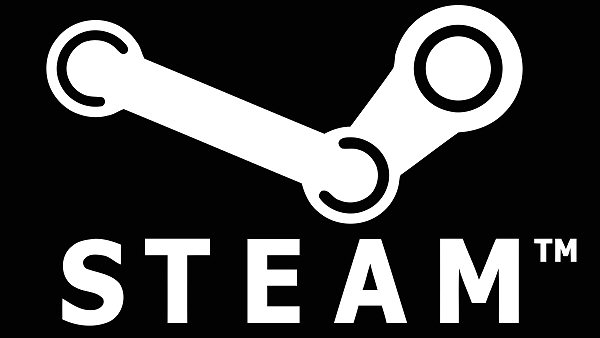
SS: As a special request, one of our writers at SpaceSector wants to know whether or not we’ll be seeing any more strategy games in the same vein as Spartan/Legion again?
Iain: We’re taking those to the iPad at the moment. So, obviously, Legion is out in iPad, Chariots of War is on development. If that works, we’ll certainly do Spartan & Gates of Troy on to the iPad. But as for creating new full games in that vein, we did have something we were looking at kind of like Legion 2, but it took a long time and it wasn’t really getting very far. So, it’s kind of been shelved a little bit at the moment. We don’t have any current development going on related to that.
The problem is, with those games, is that you’re making two games in one. You’re making the empire management game and you’re making a battle game. So, it just costs so much and takes so long that it gets prohibitive. Our thinking at the start was: “we’ll get people who are interested in both”, and the reality that we found was we only got people who were interested in both.
So, we thought that you’ve got your empire game here and your battle game is here and we’ll get both groups. What we have in fact is the overlap. We’d better off making one game that does this and one that does that because it’s cheaper to do so, it takes less time and it fits to a wider audience. So, what we we’re finding is that having too many features and too many game modes can actually be counter-productive, it can limit your audience rather than expand it. So, I’m not sure we’ll be doing any more of those, not in the current plans anyway, unfortunately. It would be good fun to make, but they just take too long (laughs).
SS: Thank you for your time.
The Slitherine Group is composed by Slitherine Ltd, Matrix Games and most recently by AGEOD. Slitherine Ltd and Matrix Games merged back in 2010. In December of 2012, the group acquired AGEOD, a French company founded by Philippe Thibaut (designer of the board game Europa Universalis) from Paradox Interactive. The Slitherine Group specializes in publishing and developing wargames and strategy games. And, as Iain McNeil said in the interview, they plan to keep expanding their science fiction strategy collection, so we’ll keep a close eye on what’s to come from them in the near future.
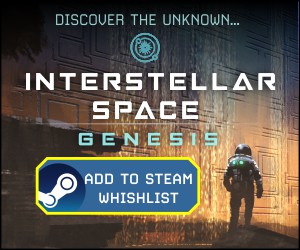
13 Comments
Related Articles:
- Pandora: First Contact Beta Preview Video
- Pandora: First Contact End of Spring 2013 – Beta Still Open
- Pandora: First Contact Looking for Beta Testers
- Pandora: First Contact is Out Now
- Matrix Games/Slitherine Have Just Announced a New Sci-Fi 4X Game !!

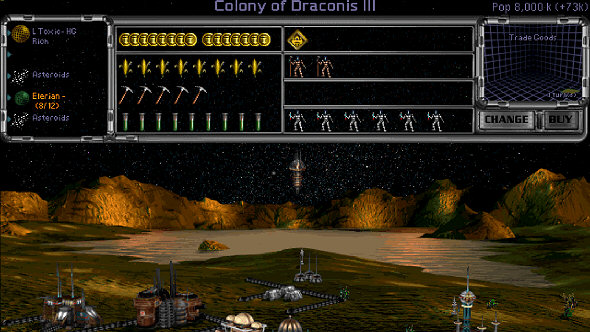
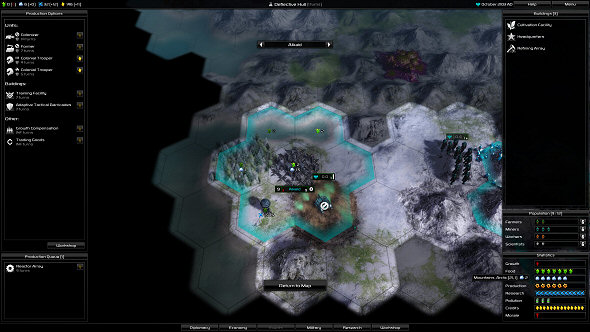
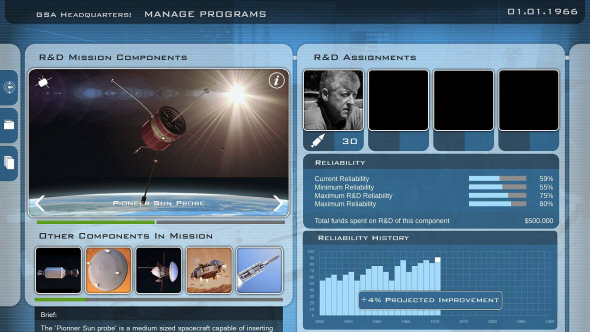
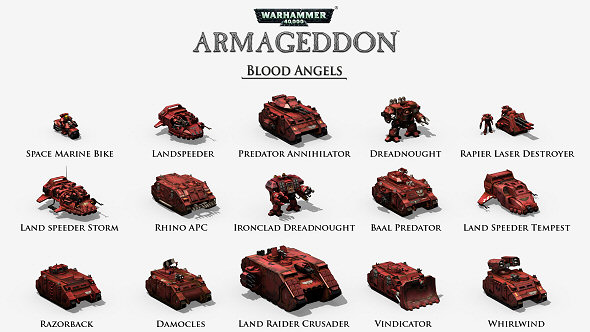
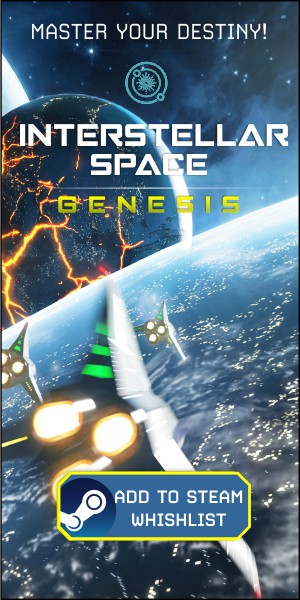





Good to see they are starting a war on the final frontier with some of their upcoming games. I trust them with their war games though and I loved their Commander: the great war and Panzer Corp. I wish they would do something like MoO because DW may be a great game but I kind of missed my space turn-based games and unfortunately I am a bit frustrated about the UI in SMAC.
Oh yeah. I had SMAC in very good memories and then bought it on gog.com a while a ago and took another look at it. If there is one thing which is really outdated it’s the interface. You basically have to learn all the hotkeys. Otherwise it’s just too much clicking through bad menues.
Let’s be thankful for higher resolutions and better interfaces in todays games.
That is the only thing that stopped me from playing SMAC. Its a great game and I heard from somewhere that the reason Sid is not making a new one is because of EA sitting on the IP. I just wish that future strategy games would get a good balance between complexity and accessability. I also hate it that most games sacrifice depth of gameplay because of the graphics.
Nice interview and very in depth about the indie stuff.
But regarding Steam I wanted to throw in some quotes from Jeff Vogel, Mastermind Behind Avernum, Avadon and Geneforge, who sold the games for “normal prices” on his own site first and then went to steam.
And while he is doing RPGs which are very “hardcore” and appealing to different audiences than 4X strategy games I doubt that avoiding steam is a good idea.
Quotes from Reddit:
Q: Which game has been your most successful…?
A: In raw moneyz, Avadon: The Black Fortress was our biggest hit, with Avernum: Escape From the Pit close behind. Being on Steam makes all the difference.
Q:from what I understand, your stance on game pricing did change quite a bit in the recent years. Your games used to be quite pricey, compared to other indie games (not compared to other rpgs, mind), and if I recall correctly you used to be, well, not exactly in favor of deep discounts and bundles and whatnot. (Please correct me if I’m wrong here.) Then they got on Steam and now you have your own Humble Bundle. What would today’s Jeff Vogel say to the Jeff Vogel of ten years ago when it comes to game pricing and discounts? Would you have started earlier with the discounted games, or would you even like to go back to the good old pre-bundle days? Are you happy with the way all of this turned out?
A:This isn’t quite correct. We have always, since 1994, charged the prevailing price for indie games. At the time, any indie (shareware) game of any note was $25, so my first game was $25.
I lowered my prices because the industry changed. Now it has much better distribution (Steam) and much more visibility, and sells more titles with smaller prices. So now we charge $10 most of the time, which once again is the prevailing price for my sort of title.
And it’s working very well for us.
Q:Hi Jeff, I’m a new fan having discovered your games via Steam and the recent Humble Bundle. What has your experience been of moving to third-party digital distribution and to indie deal packs, after (from what I figure) being your own merchant for a long time? Is it working out for you?
A: It has been amazing. Steam and the Humble Bundle have changed my life. I’m not being snide or exaggerating. They’ve revolutionized the business in many good ways.
Panzer Corps went to green light months ago. With all the interest it must have generated can you please point me were to buy it at? It did go on sale on steam within a couple of days right and for a mere pittance compared to what Matrix wants for it
They have the 40k licence which is perfect for a 4x setting.Not many IP’s baring Star Trek/Wars hold such clout.
They have the 40k licenses for the Battle on Armageddon, so its not gonna be an 4x i think
Wait, what??!! I live in Fredericksburg!! You were here? Slitherine is here?
Mind. Blown.
I want to play Pandora. Now.
Game design/publishing is so topheavy..we need to go back to the days where friends could kick out a game from their garage.
Fredburg is the last southern stop for the Wa. DC commuter rail..so people who work in DC but cant afford to live there and/or dont want deal with the horrid DC traffic live in Freburg.
Love the interview. Especially the gaming on PC part. :)
A lot of folks are really down on Steam, mostly because it acts like a DRM (requires you to be connected to Steam to play games.)
That aspect has never really bothered me as I’m a home-body and usually am online anyway. What I love about Steam is that they sell games cheaper than anyone else, enabling me to buy games without having to do without food or electricity.
This brings me to Slitherine. I’ve been tempted to buy the Distant Worlds series many times, but the price is off-putting. More than once I’ve loaded up my cart only to stare at the total and thought “What if I don’t like it? How many Steam games could I buy for that amount?” and cancelled the order.
Give in to the Dark Side, Slitherine. Contract with Steam so that those of us repelled by your current DW pricing will be able buy DW guilt-free.
Jeff, I concur Slitherine’s prices are savage and unreasonable, but once a year in December they have a sale across 90% of their catalogue for between 30-50% cheaper.
I know that’s not going to help you now but if you wait you can probably get a few games cheaper.
Also, steam is cheap I agree, but not always the cheapest. For example, Rome 2 with dlc is $60 on steam yet on ‘Get Games’ in NA it’s ‘only’ $45. Pays to shop around.
At the end of the day Slitherine won’t go steam as they want top dollar and by having their own store not only are there no middlemen (steam) but they can charge crazy prices. Steam would take a cut of that already low price which as the bloke in the interview says would mean “going and having to giving it up and get a job”.
“Turn-based games you can have a dip in and out more easily, at least thats the way I find it as well.”
That’s a lie! Just one more turn, I can’t save in a middle of a battle (MoO) and I’ll save and quit when research completes are syndromes that will keep a player in 4X TBS well past midnight.